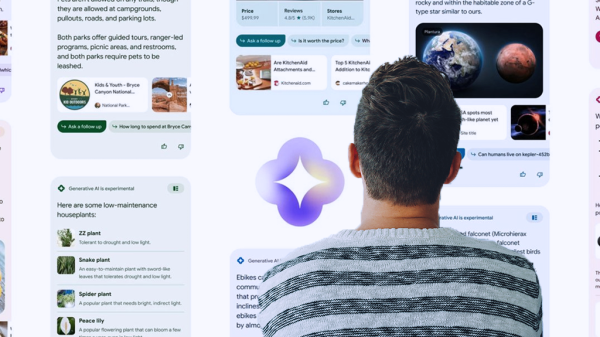AR headsets of the past have almost unanimously been flops, with even the most promising of prototypes coming up short. A recent patent application from Google that focuses on the ability to read brain activity might change that, better or worse.
Nat Rubio-Licht’s Patent Drop report spells out the finer details of Google’s potential bid, clarifying that the technology in question would use sensors to monitor “magnetoencephalography (MEG) signals” in the brain. With this information, the theoretical headset could then be used to navigate any number of extended reality environments.
The patent abstract also sheds some light on Google’s possible intentions: “Quantum sensors may have a size suitable for integration with an extended reality device, such as an augmented reality device or a virtual reality device…Trained computer models may be used in a recognition algorithm to detect and/or classify particular brain activities. The particular brain activities may then be used to control an extended reality application.”
The potential applications are numerous.
Rubio-Licht describes an example in which a user’s emotions could be recognized by the headset and then reflected by an avatar in a virtual world, but David Smith, both founder and CTO of Croquet.io, believes the true benefits will lie in the lack of physical gestures associated with this kind of technology.
“They’re thinking about the problem the right way: They’re getting me away from putting my arm up there,” says Smith.
But Smith also expresses some concerns about the impact of a virtual interface that actually talks to your brain, explaining that such a “direct feedback loop” can fundamentally alter the way your brain works.
Smith similarly cites the cost of development and the headset itself as barriers to entry for Google.
Certainly, the idea of quantum sensors that can fit into a VR headset–or something even smaller–in order to allow you to interface with various programs and the metaverse at large is the stuff of the future.
Like all revolutionary technology, the impact of such a discovery could be devastating to the already suffering social paradigm that is commonly associated with extended social media and alternative reality use.
However, should Google proceed with this development–overcoming both the cost and the ethical concerns–they may very well have a product that cracks the code on the AR wearable struggle.
Jack Lloyd has a BA in Creative Writing from Forest Grove's Pacific University; he spends his writing days using his degree to pursue semicolons, freelance writing and editing, oxford commas, and enough coffee to kill a bear. His infatuation with rain is matched only by his dry sense of humor.












































